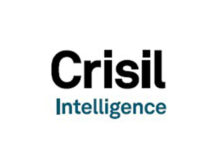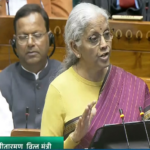The global economy is facing mounting challenges, with growth projected to decline to 2.4% in 2025, a drop from 2.9% in 2024, according to the United Nations’ World Economic Situation and Prospects (WESP) report.
The report notes significant slowdowns in key economies. China’s economic expansion is forecast to ease to 4.6%, as weak consumer spending, disruptions in export-driven industries, and persistent issues in the property market weigh on growth. India’s growth outlook for 2025 has been adjusted downward to 6.3%, although it continues to rank among the fastest-growing major economies.
In a press release issued Thursday, the UN warned that the world economy is at a critical point, shaped by rising trade tensions and persistent policy uncertainty. The statement highlights a steep rise in tariffs—particularly in the U.S.—which is expected to increase production costs, disrupt global supply chains, and exacerbate financial instability. The new 2025 growth projection of 2.4% also falls 0.4 percentage points below the UN’s January forecast.
The release further detailed that China’s economic slowdown reflects soft consumer demand, challenges in manufacturing for export, and continued weakness in the real estate sector. In addition to China and India, other major developing economies such as Brazil, Mexico, and South Africa are also seeing reduced growth forecasts, driven by declining trade activity, lower investment levels, and falling commodity prices.
The UN emphasized that the economic deceleration is widespread, impacting both advanced and developing nations. In the United States, growth is expected to slow sharply from 2.8% in 2024 to 1.6% in 2025, influenced by increased tariffs and growing uncertainty, which are expected to curb both private investment and consumer spending. Meanwhile, the European Union’s growth is projected to remain steady at 1.0% in 2025, unchanged from 2024, amid sluggish export performance and rising trade barriers.
Li Junhua, UN Under-Secretary-General for Economic and Social Affairs, cautioned that the current wave of tariff increases threatens to dampen economic momentum, reduce export earnings, and worsen debt pressures—especially in economies already facing challenges in funding sustainable development goals.
“The surge in tariffs poses serious risks for vulnerable developing nations, potentially slowing their growth, cutting export revenues, and intensifying debt concerns—just as they struggle to invest in long-term sustainability,” Junhua said.
The UN also drew attention to the ongoing impact of food inflation, which has averaged above 6%, disproportionately affecting low-income households in regions such as Africa, South Asia, and Western Asia. The report warned that climate-related shocks and higher trade restrictions are compounding inflation pressures.
“Rising food costs continue to strain low-income families, especially in vulnerable regions. To manage these risks, there’s an urgent need for coordinated policies that combine sound monetary strategies, focused fiscal support, and long-term planning to stabilize prices and protect those most at risk,” the release concluded.
















